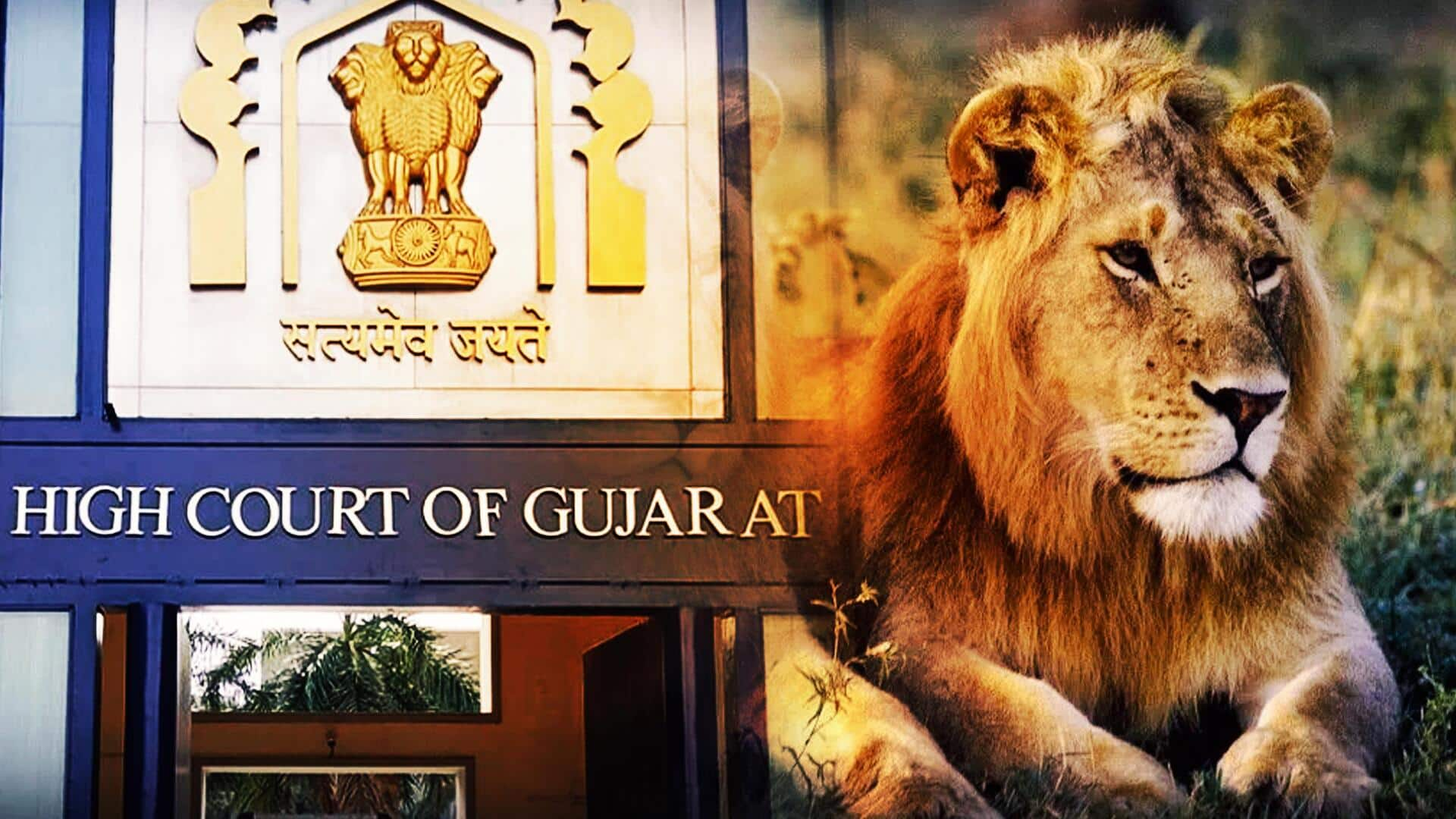
Gujarat HC pulls up Indian Railways over lion deaths
What's the story
The Gujarat High Court has expressed concern over the frequent deaths of Asiatic lions on the state's railway tracks, attributing these incidents to the negligence of the Indian Railways. Chief Justice Sunita Agarwal stressed the need for immediate action to prevent such incidents, stating, "We are not going to tolerate that you are killing them every day." The HC has taken suo motu cognizance of the death of lions on railway tracks.
Context
Why does this story matter?
The Gir forest in Gujarat serves as the sole natural habitat for the Asiatic lion—with a recorded population of 674 in 2020, as per government statistics. Over the years, experts have demanded the translocation of lions within India as the big cats have been geographically isolated in Gir. A secondary habitat could safeguard the lion population from extinction risks posed by epidemics, prey scarcity, or natural/manmade disasters. To recall, in 2018, 27 lions succumbed to the canine distemper virus in Gir.
HC slams railways
Court disapproves railways' handling of lion deaths
The court expressed discontent with the railways' handling of "two lions being run over...this year." It also rebuked the railways for not initiating an investigation into the two deaths on the tracks in Rajula and Pipavav in January. The HC emphasized the need for coordinated efforts between railway authorities and forest officials to "save the lions, which are the pride of the country."
Amicus curiae report
Report underlines railway threats to Asiatic lions
The court also raised concerns over Rail Vikas Nigam Limited's repeated efforts to convert meter gauge lines into broad gauge near Gir Sanctuary, the habitat of Asiatic lions. It referred to a report by amicus curiae Hemang Shah, which warned that gauge conversion could lead to an increase in train traffic across these routes, posing a greater risk to lions. The report proposed restricting goods train movement from dusk until dawn as lions are primarily active at night.
Report's findings
Damaged fencing and poor coordination pose risks to lions
The report pointed out that the sudden bright light from trains can blind these animals due to their superior eyesight, increasing risk of accidents. The report added that "fencing on both sides of the railway tracks is broken at many places or removed due to which lions come onto the tracks." It recommended that both railways and state government should work together to restore fencing or barricades along the railway track "throughout the sanctuary and nearby areas."